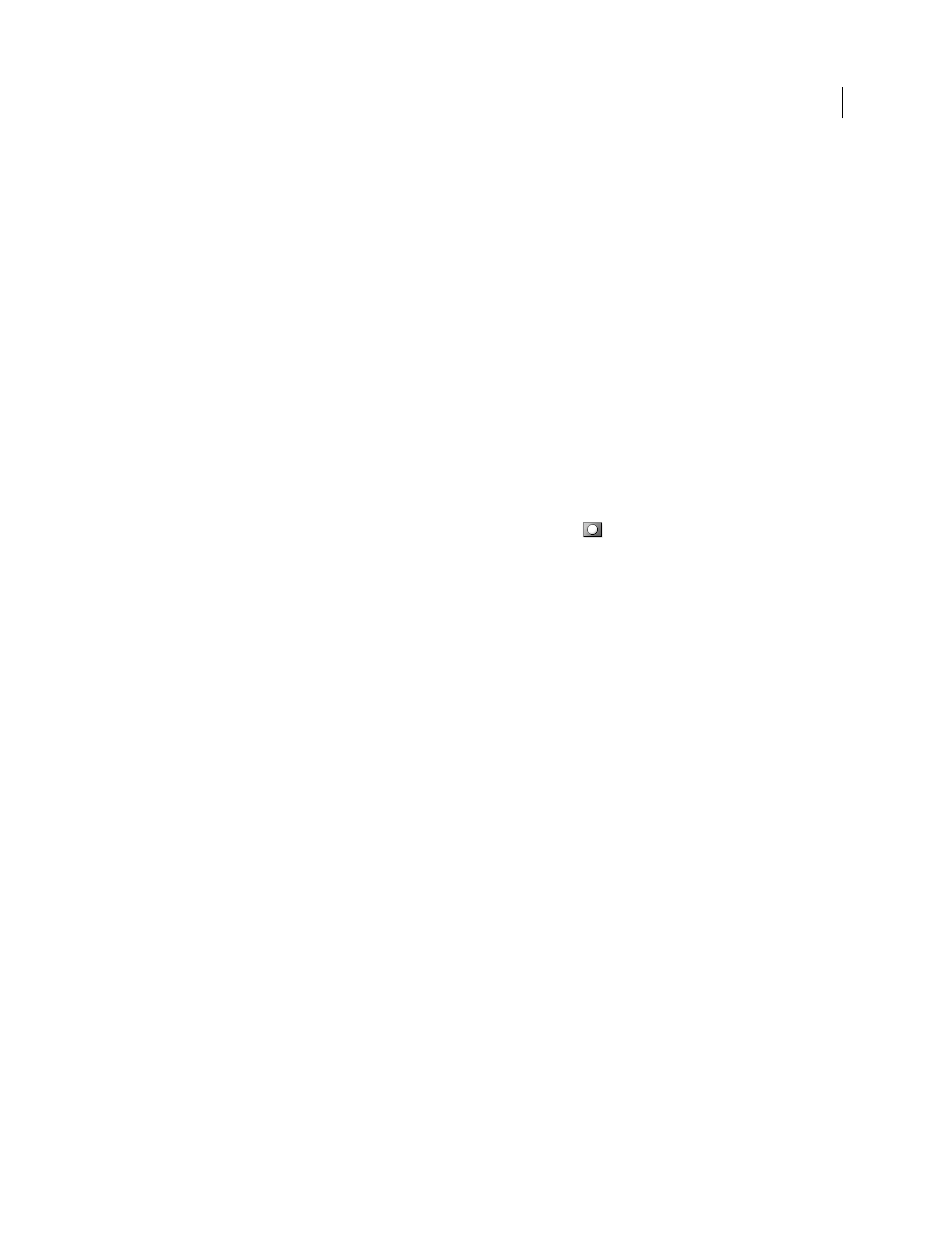Copy artwork by dragging and dropping, Deleting and extracting objects, Remove (cut) an object from a photo – Adobe Photoshop CS4 User Manual
Page 276: Delete selected pixels, Channels, About channels

269
USING PHOTOSHOP CS4
Selecting and masking
Last updated 1/10/2010
Copy artwork by dragging and dropping
❖
Do one of the following:
•
Drag one or more Illustrator vector objects into an open image in Photoshop. This creates a vector Smart Object
layer in the image. Choose Layer
> Smart Objects
> Edit Content to reopen the content in Illustrator for editing.
•
To copy the vector object as a path in Photoshop, hold down Ctrl (Windows) or Command (Mac
OS) as you drag
from Illustrator.
•
To copy the contents of the currently selected layer in Photoshop to Illustrator, use the Move tool to drag the
content from the Photoshop window into an open Illustrator document.
Deleting and extracting objects
Remove (cut) an object from a photo
1
In the Layers panel, select the layer containing the object you want to remove.
2
Using a selection tool, select the object you want to remove.
3
If you need to refine the selection, click the Quick Mask Mode button
in the toolbox. Photoshop masks or
covers the non-selected areas of the image in a translucent color. Select a brush and appropriate brush size in the
options bar. Paint with black to add to the mask; paint with white to reveal more of the image.
4
To remove the selected object, choose Edit > Cut.
Delete selected pixels
❖
Choose Edit > Clear, or press Backspace (Windows) or Delete (Mac
OS). To cut a selection to the clipboard, choose
Edit > Cut.
Deleting a selection on a background layer replaces the original color with the background color. Deleting a selection
on a standard layer replaces the original color with layer transparency.
Channels
About channels
Channels are grayscale images that store different types of information:
•
Color information channels are created automatically when you open a new image. The image’s color mode
determines the number of color channels created. For example, an RGB image has a channel for each color (red,
green, and blue) plus a composite channel used for editing the image.
•
Alpha channels store selections as grayscale images. You can add alpha channels to create and store masks, which
let you manipulate or protect parts of an image.
•
Spot color channels specify additional plates for printing with spot color inks.
An image can have up to 56 channels. All new channels have the same dimensions and number of pixels as the
original image.
